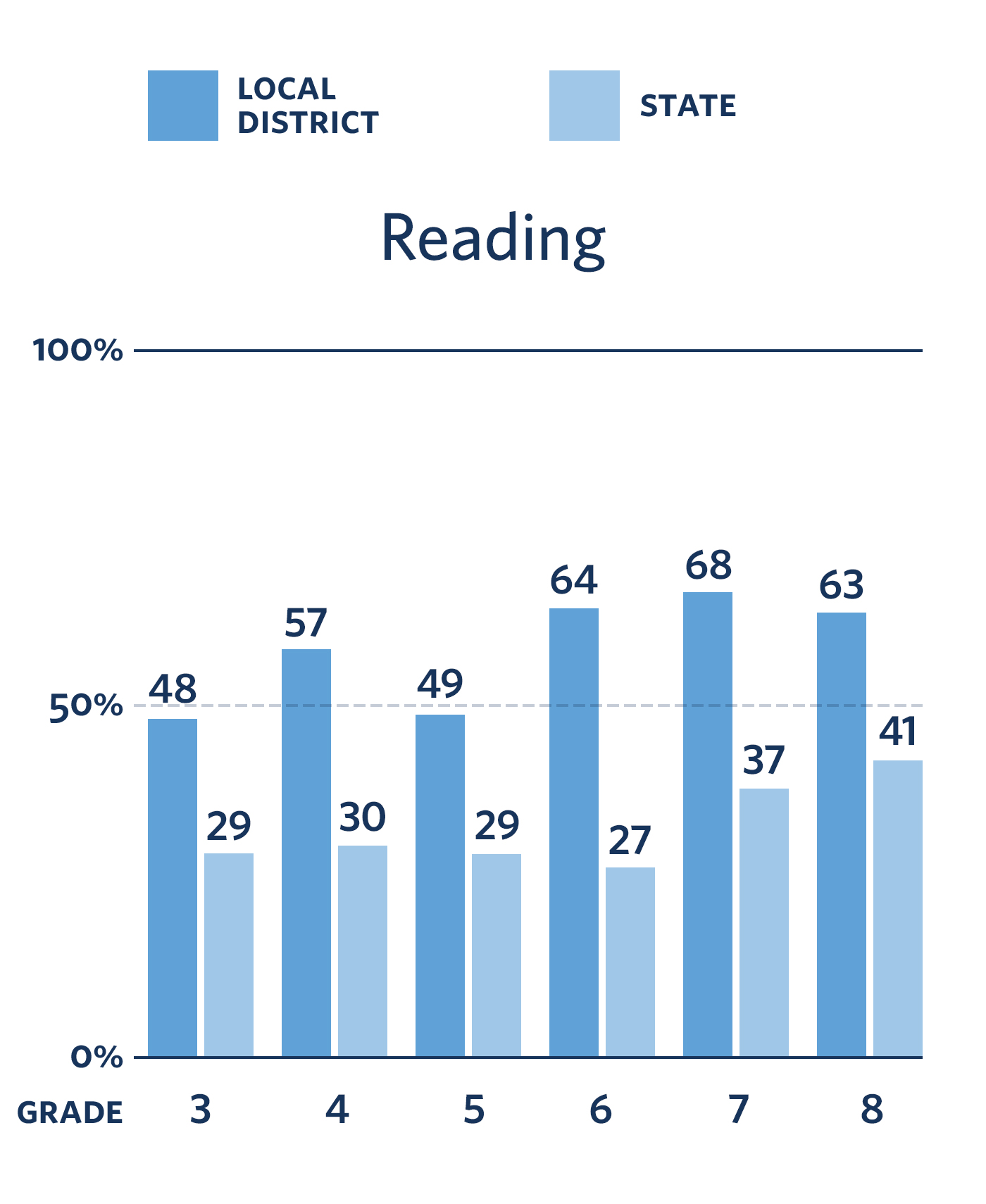
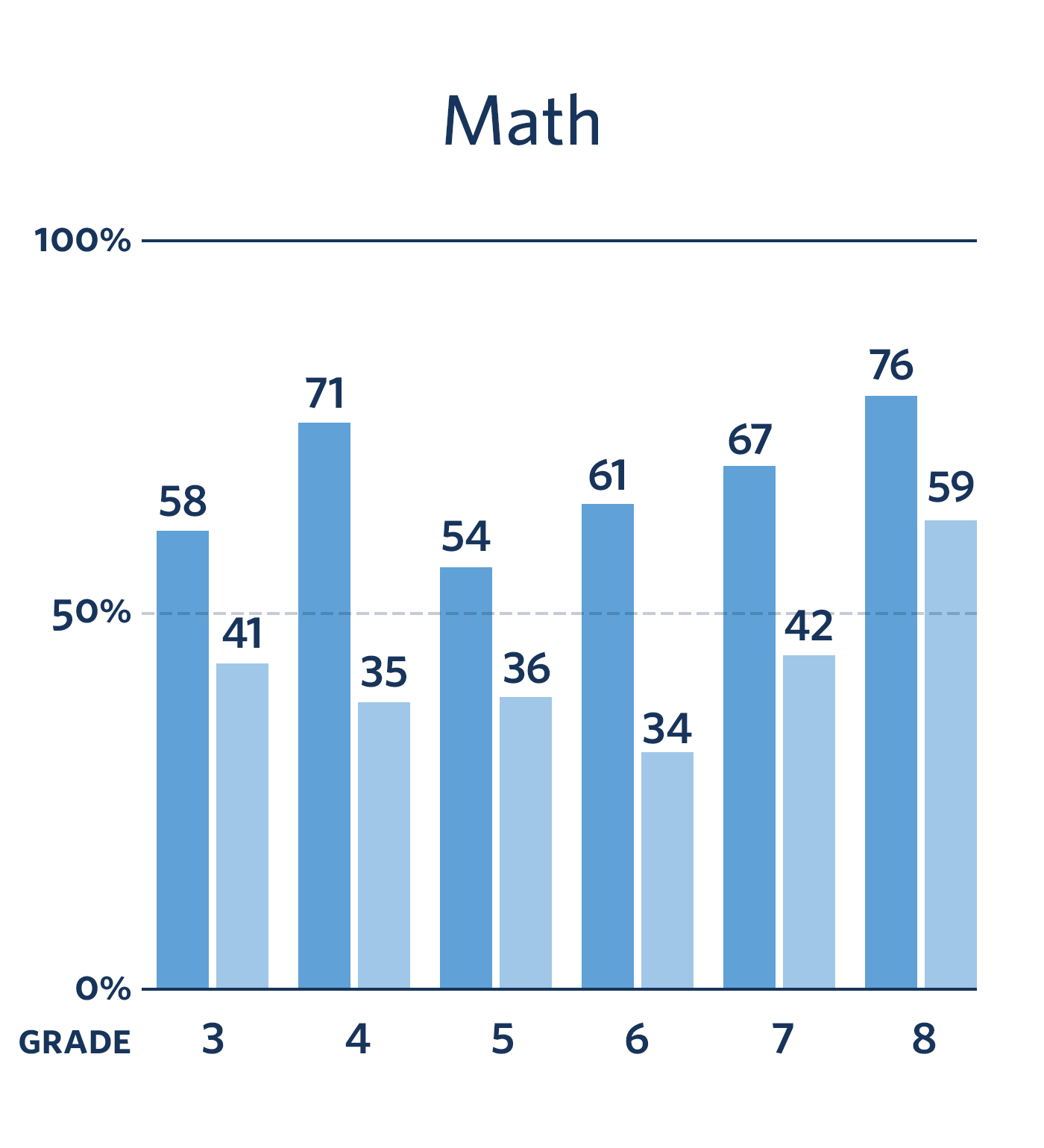
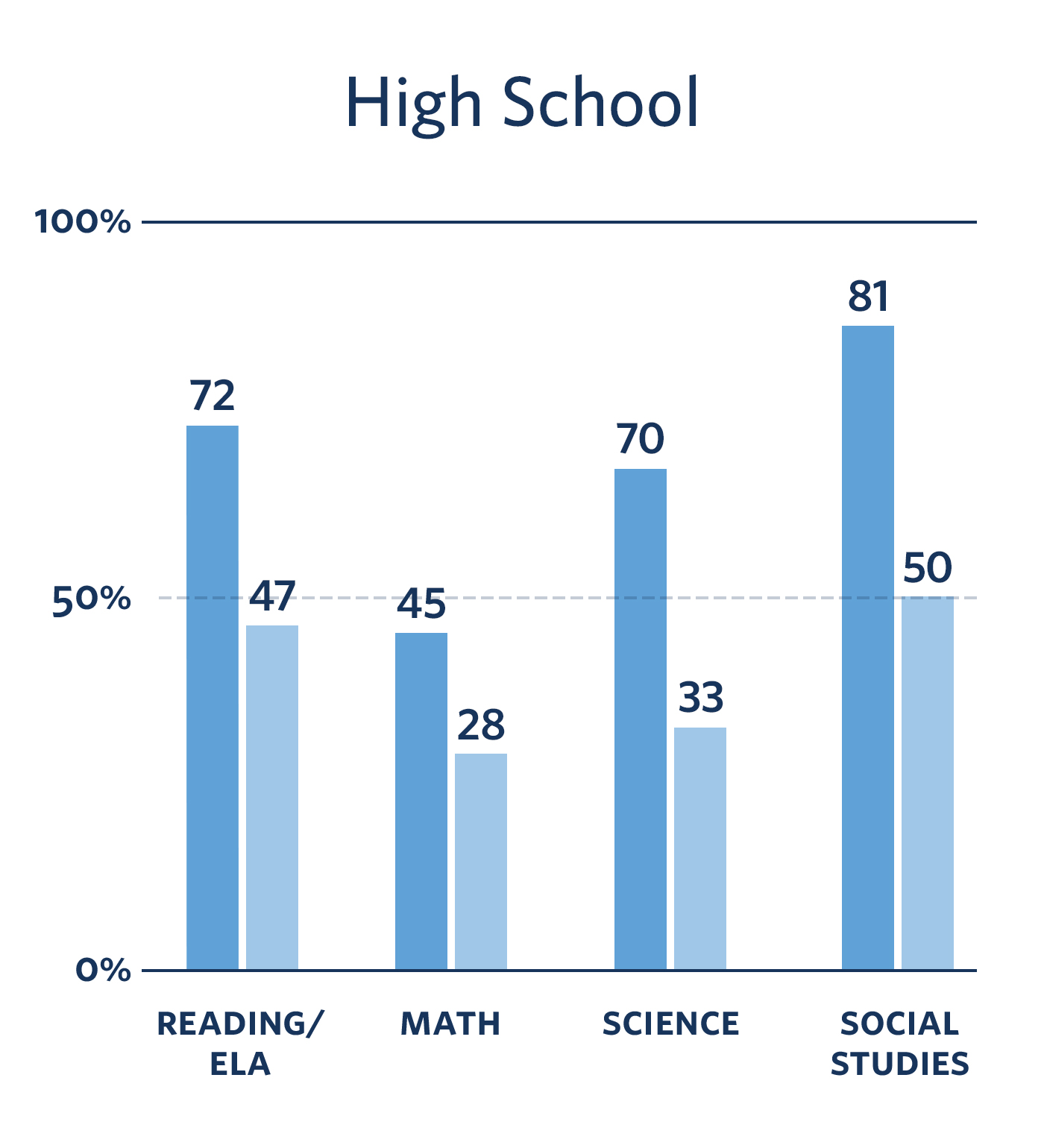

Helping our students prepare for college, career, and beyond is only possible if we know exactly how we are doing. Data helps us understand what our true impact is, what is working, and what needs to be improved. Our Six Essential Questions provide a yardstick by which to measure our progress, keep us focused as we grow, and—most important—help us keep the promises we make to our students and their families. We are in the process of reevaluating our Six Essential Questions so that they fully align to our mission. We have begun to shift our data collection and reporting efforts to speak to our commitment to supporting KIPPsters in pursuing the paths they choose.
KIPP schools are open to every student, regardless of academic performance. When parent demand exceeds enrollment capacity at a KIPP school, students are admitted based upon on a local lottery system.
We know that when a school is healthy, students want to return year after year. We are committed to creating schools where all students can thrive, and we closely track student attrition to ensure we’re keeping our students with us and meeting our mission.
Percentage of students who returned in Fall 2023:
The percentage of students enrolled at a KIPP school on October 1, 2022 who were still enrolled in a KIPP school on October 1, 2023.
Question 3: Are Our Students Progressing and Achieving Academically?Our goal is to ensure every KIPP student is prepared for college. We use a variety of tools to understand student achievement and look closely at our results to ensure we’re fulfilling this promise to students and families.



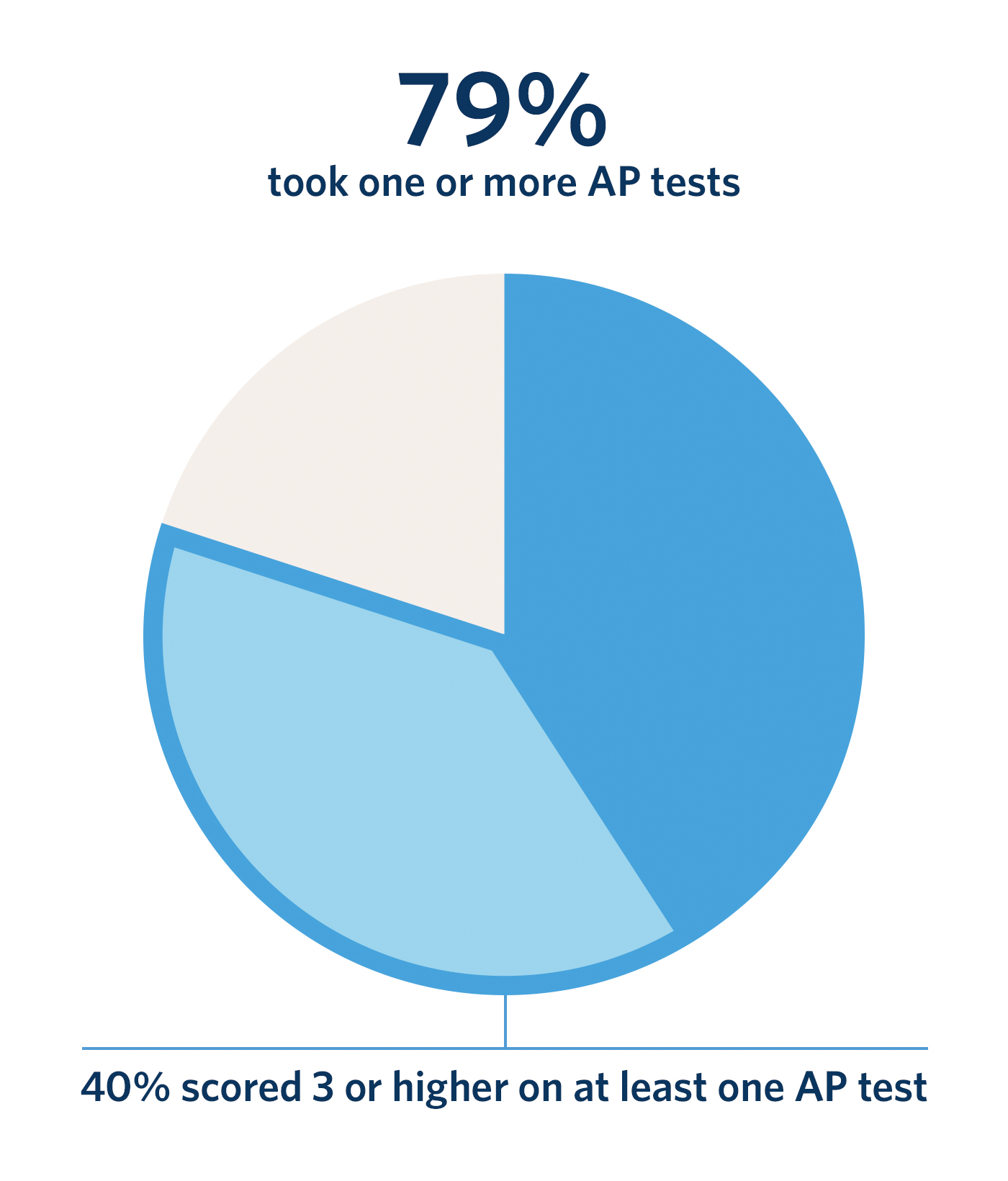
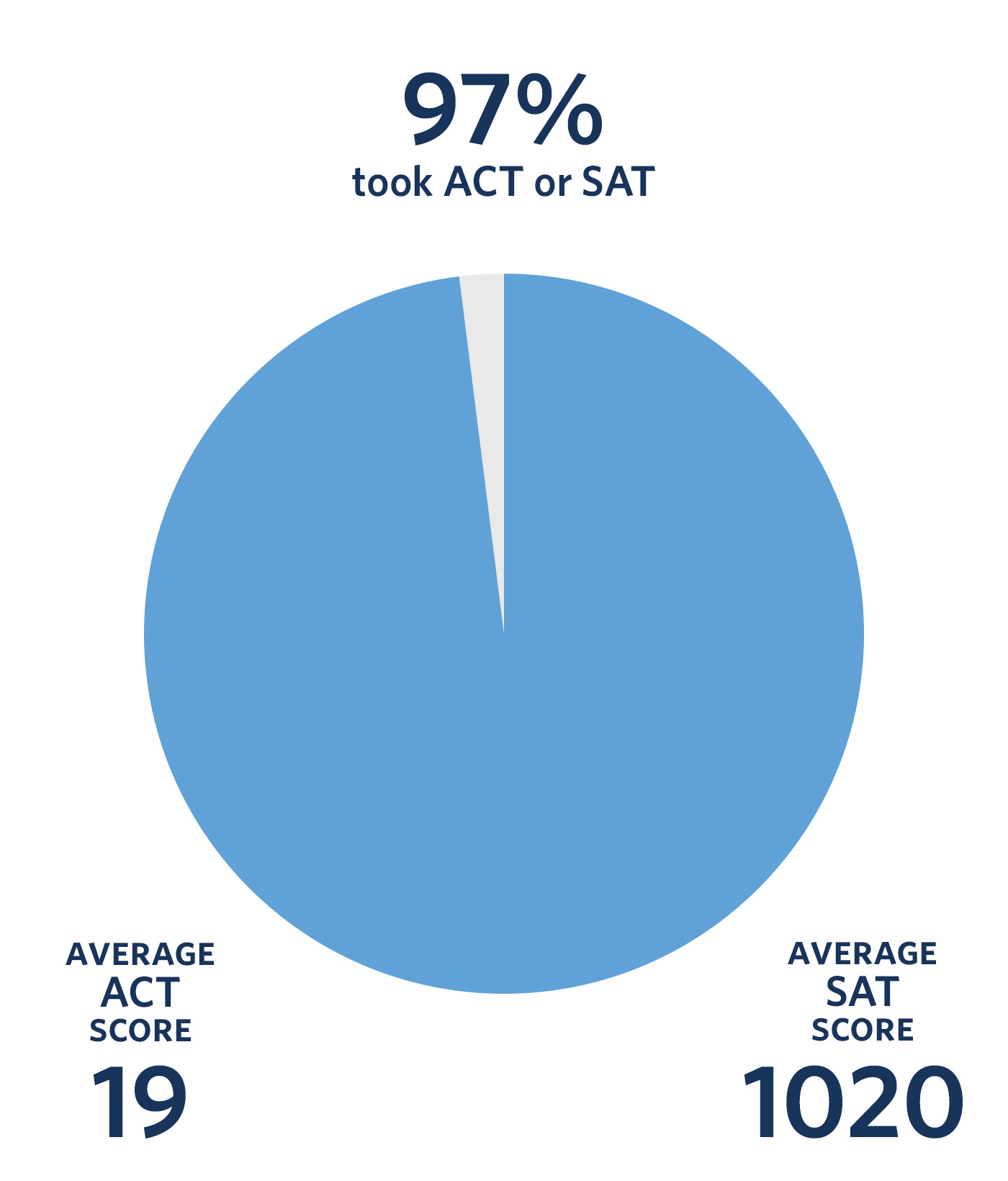
To meet our mission in preparing students to lead choice-filled lives, we follow the progress of our KIPP alumni, examining their rates of high school graduation, as well as college enrollment and college completion.
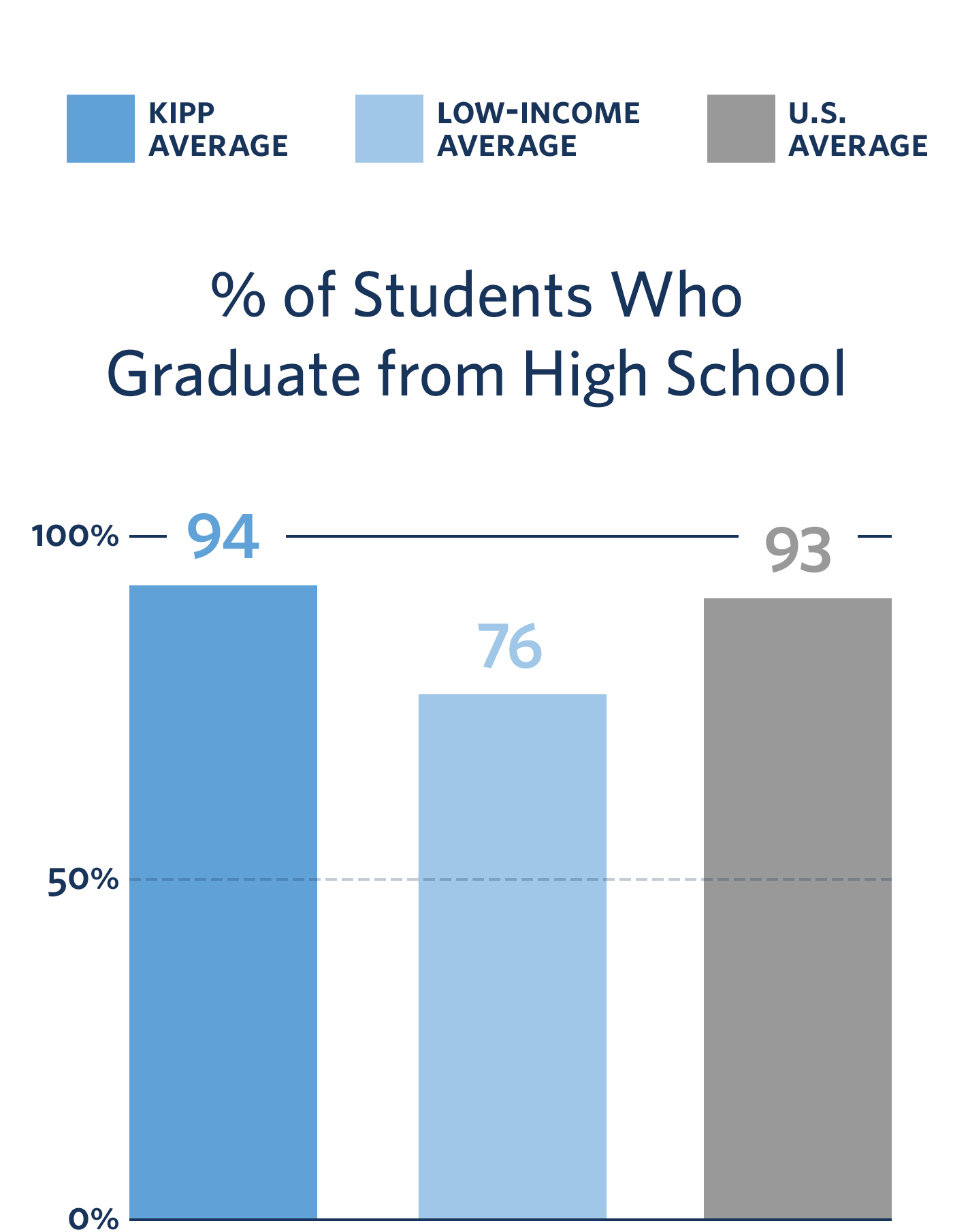
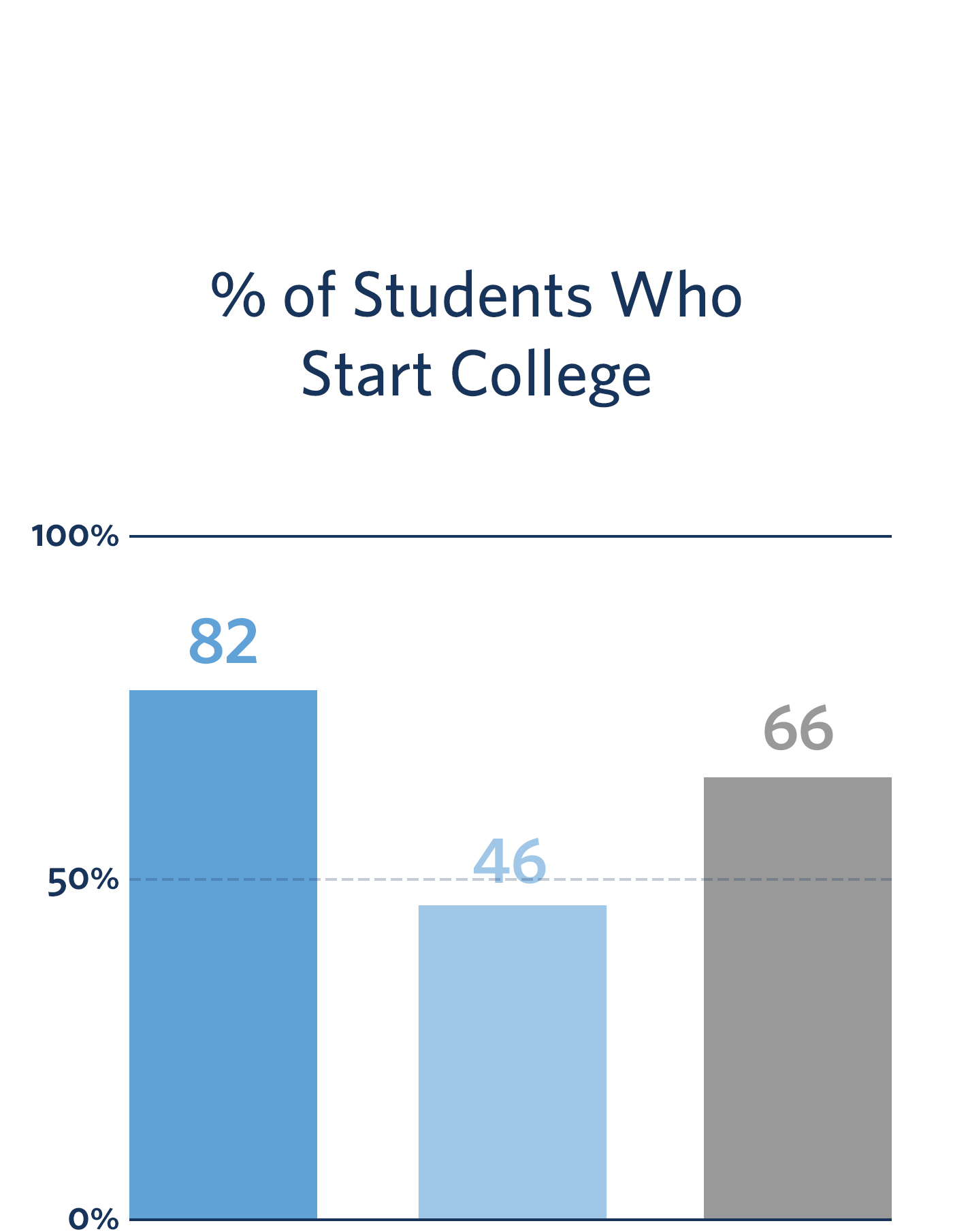
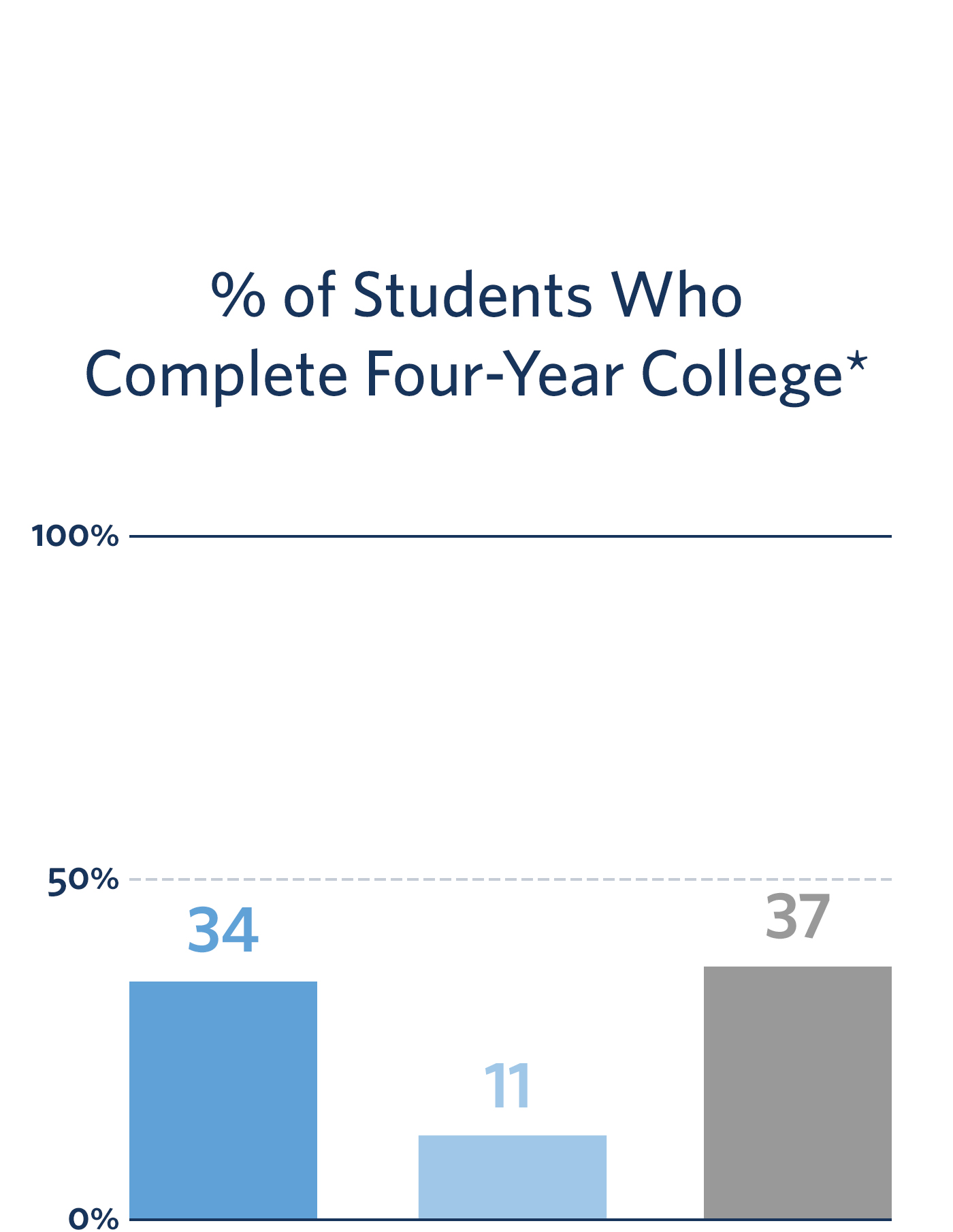 *As of fall 2019, an additional 5% of KIPP alumni earned associate’s degrees. KIPP tracks its rates of high school graduation, college enrollment, and college graduation for all students who either completed 8th grade at a KIPP middle school or graduated from a KIPP high school. Data above reflects the latest available from the 2018-19 school year.
*As of fall 2019, an additional 5% of KIPP alumni earned associate’s degrees. KIPP tracks its rates of high school graduation, college enrollment, and college graduation for all students who either completed 8th grade at a KIPP middle school or graduated from a KIPP high school. Data above reflects the latest available from the 2018-19 school year.
Leading up to the reauthorization of the Higher Education Act, KIPP published a report calling on education leaders, policy makers, higher education institutions, and advocates to commit to drastic changes in the ways we currently support students in college. The report includes five strategies to increase college matriculation and persistence rates for students of color, first-generation college goers, and students from low income families, as well as the latest national college completion data for KIPP schools. Download Report
The 2017 KIPP Alumni survey focused on how KIPP alumni experience a sense of belonging in college. The financial difficulties faced by students from low-income families in making it to graduation are well documented, but recently, less tangible factors—like sense of belonging—have also been shown to impact college completion rates. The survey results also show a connection between sense of belonging for KIPP alumni in college and both their mental health and achievement. 2017 Alumni Survey Results
In an effort to demonstrate how our KIPP alumni were faring after they left our schools, we published The Promise of College Completion: KIPP’s Early Successes and Challenges in 2011. This report detailed the college completion rates from the first two KIPP middle schools and offered a clearer picture of the challenges students from low-income communities face on the path to a degree, as well as the factors that help them succeed. Download Report
Question 5: Are We Building a Sustainable People Model?Educators are at the heart of KIPP. We are committed to investing in the people who join us, and making sure they have the supports they need to do their best work every day.